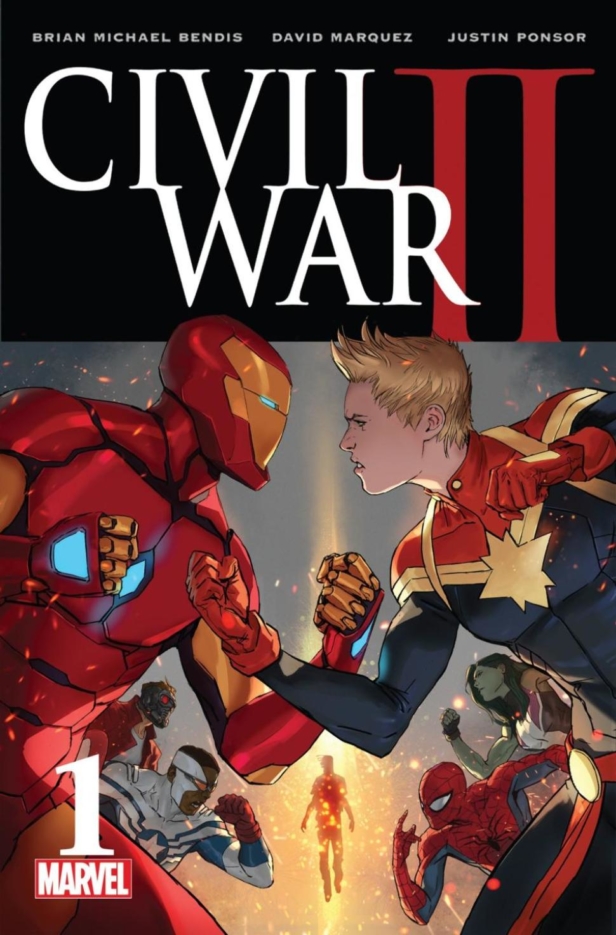Marvel’s first Civil War crossover was proof that superhero comics don’t always need solely comprise bashing and smashing – although some is still perfectly fine. Crafting a conflict that gave that ‘with great power comes great accountability’ quote real weight, it remains one of its best storylines in recent years.
Civil War II attempts to replicate this formula, although instead the source of conflict is a recently powered-up Inhuman called Ulysses, who can predict and project the future, allowing the Avengers to pre-emptively deal with the threats he foreshadows, much to the misgivings of Iron Man.
When his pal War Machine is killed during one mission, he breaks ranks finally, positioning himself across the divide against Captain Marvel – which becomes even more blurry when the apparently innocent likes of Bruce Banner and Miles Morales are implicated in Ulysses’ visions.
Initially, the Minority Report-esque premise is an intriguing one – given the chance to stop crime even taking place, many people would take it up – although how would you feel if you were the one being hunted as a consequence? Both sides present their disputes well initally, with equal weight being assigned to veterans Captain America, Black Panther and Hawkeye alongside newbies like Nova and Kamala Khan. In light of their recent MCU appearances, Doctor Strange and the Guardians of the Galaxy have prominent roles too.
However, the further the story progresses, the more quickly it runs into narrative dead ends. A number of big names are bumped off to give the story weight, which works on the story investment front, but Iron Man and Captain Marvel’s arguments just go round and round in circles, and the reason for all the subsequent battles increasingly nonsensical. While the original Civil War’s battles were organic in their build-up and unforgettable in their execution, it all feels less thought-out here, trademark Bendis quips aside.
Then there’s the ending. The final issue has to rank as one of the most lacklustre in comic-book history – especially as it has all the makings of something truly memorable, with the two protagonists scrapping on the steps of Washington. But instead, we bear witness to something so rushed and nonsensical that it makes you question exactly what the point of everything before it was.
Moreover, the closing revelation makes even less sense. If nothing else, Marvel’s line-wide crossover events have always been adept at establishing the new status quo, but here we’re genuinely hard-pressed to ascertain exactly what the new world order is, or why.
If the final three issues could have matched the wit and wonder of the first five then we would be recommending this highly. As it turns out, all of Bendis’s on-point writing can’t disguise what looks like a remarkably ill thought-out story.
Aside from the various deaths and incapacitations (which, let’s face it, will be retconned at some point in the near future), it’s hard to see what the legacy of Civil War II will be.
